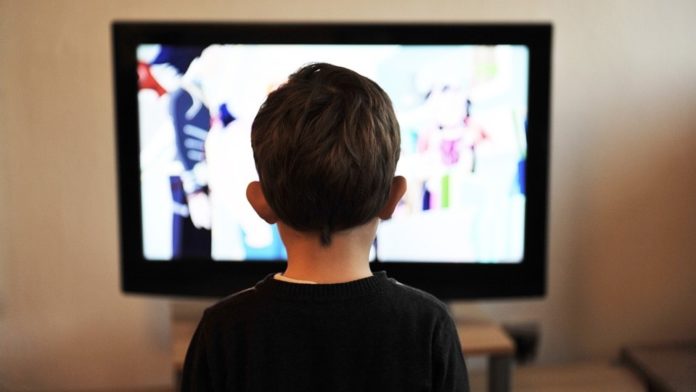A Canadian study has linked screen time in excess of two hours to behavioural and attention problems among young kids.
Researchers from the universities of Alberta, British Columbia, Toronto, and McMaster studied a cohort of over 2,400 families and compared kids who spent at least two hours in front of screens per day with kids who spent less than 30 minutes with them.
Data on the children at ages 3 and 5 years old were sourced from the Canadian Healthy Infant Longitudinal Development study, an ongoing study following thousands of children with the aim of discovering “how different early-life exposures relate to health and disease outcomes.”
Parents self-disclosed info to the CHILD study, reporting on time spent by their child watching TV, playing video games, browsing on a tablet/smartphone, and more. This information was gathered twice, at ages three and five for the child.
At 3 years old, the average screen time was 1.5 hours a day, while the average for 5 years of age saw a slight decrease at 1.4 hours. A total of 13.7% of all children were reported to be in excess of two hours per day with screen time. When their child reached age 5, the parents also filled out a Child Behaviour Checklist, a questionnaire designed to assess behavioural and emotional issues.
The 13.7% of kids in excess of two hours of screen time were found to be five times more likely to display clinically-significant externalizing behaviours, including attention problems, when compared with kids who had less than 30 minutes of screen time. They were also seven times more likely to meet the criteria for Attention-Deficit/Hyperactivity Disorder (with the exception of aggressive tendencies).
“This association was greater than any other risk factor we assessed, including sleep, parenting stress, and socioeconomic factors,” says co-author Sukhpreet Tamana.
Structured athletics may be antidote to excessive screen time
The Canadian government’s current guidelines state that kids under 2 should be getting no screen time, pre-schoolers a maximum of one hour daily, and two hours max for 5-year-olds.
Incorporating structured physical activity into a child’s life was noted to be a significant counter to the risks associated with excessive screen time. Kids with at least two hours of organized sports a week were found to have fewer behavioural issues than their peers.
“A lot of the things that you do through organized activities are really important for young kids early on,” says Tamana. “It sets the stage for development amongst children. I think in lieu of screen time, it would be beneficial for parents to increase opportunities for other structured activities instead.”
Some noted limitations of the study include relying on the subjective input of parents and the lack of data to discern between the effects of different types of screen content — for example, FaceTime versus Fortnite. In their concluding remarks, the authors suggest that future research should include randomized controlled trials and data on individual forms of content for a more detailed understanding of their effects.





































